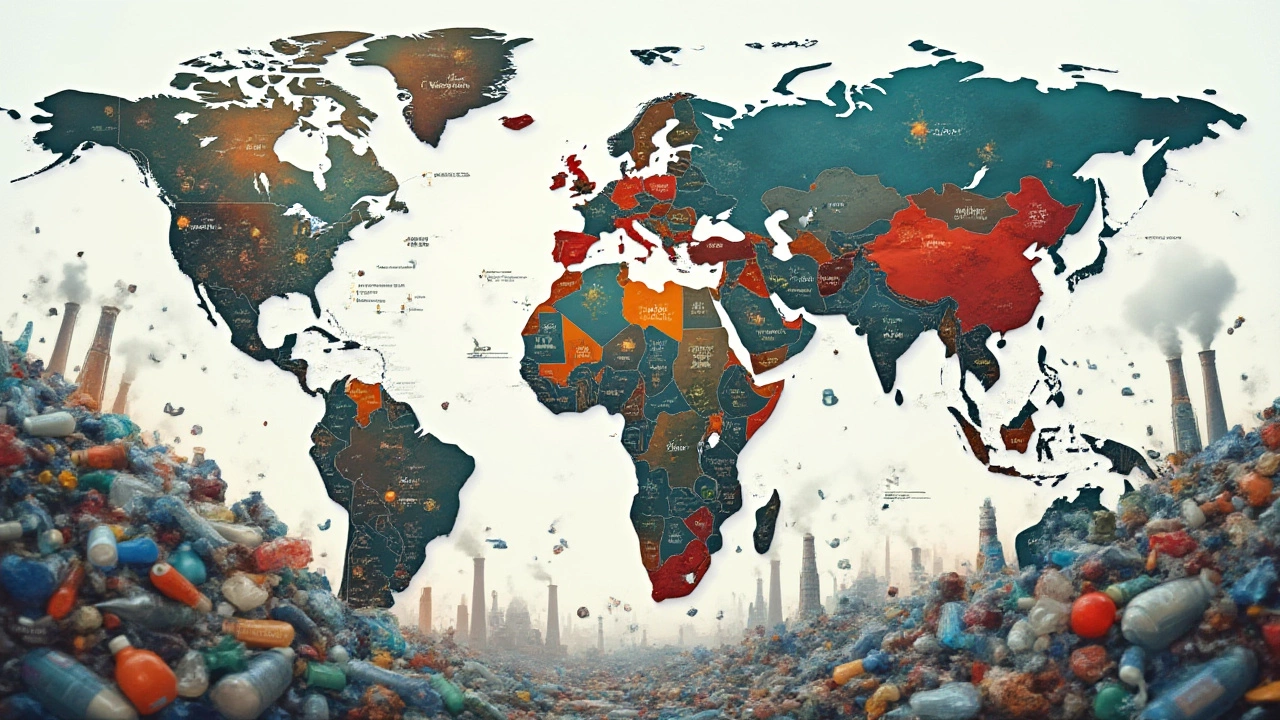Single-Use Plastics: What Manufacturers Need to Know
Every day you see plastic bags, straws, and packaging that are used once and tossed away. Those items may look harmless, but together they add up to millions of tonnes of waste every year. In India, single-use plastic waste is growing faster than the country can recycle, and the pressure is now on factories to change how they source and design products.
Why Single-Use Plastics Matter
Unlike durable goods, single-use plastics are designed to disappear after a short life. The problem is they often end up in landfills, rivers, or the ocean. Recent data shows that over 60% of plastic waste in Indian cities is from single-use items, and less than 10% gets recycled properly. This creates a direct cost for manufacturers: higher waste disposal fees, stricter regulations, and a growing demand from customers for greener products.
Regulators are also tightening rules. The Ministry of Environment has announced bans on certain plastic items and set targets for reducing plastic waste by 30% by 2030. Companies that ignore these signals risk fines, losing market share, or facing brand backlash.
Practical Steps for a Greener Production Line
Switching away from single-use plastics doesn’t mean you have to scrap your entire supply chain. Start by reviewing the materials you use most often—packaging films, disposable containers, and sealing tapes are common culprits. Look for alternatives that fit existing equipment: biopolymer films that can be processed on standard extrusion lines, or recycled PET that meets food‑grade standards.
Partner with suppliers who offer transparent sourcing data. Many Indian plastic manufacturers now provide recycled content certificates, making it easier to verify claims. Investing in in‑house recycling equipment, such as small‑scale granulators, can turn off‑cuts and scrap back into usable resin, cutting both waste and material costs.
Design changes also help. Reduce the thickness of packaging where possible, use modular designs that allow one piece to serve multiple purposes, or switch to reusable containers for bulk shipments. Simple tweaks like adding a small perforation for easy opening can eliminate the need for extra plastic seals.
Finally, communicate the shift to your customers. Highlight the use of recycled or bio‑based plastics on labels, share your waste‑reduction targets, and invite feedback. Transparency builds trust and often translates into higher sales, especially as Indian consumers become more eco‑conscious.
Viraj Machinery can guide you through these changes. With expertise in polymer processing, we help you select the right equipment, test new materials, and meet quality standards without a costly overhaul. Making the move away from single-use plastics is a practical step toward a cleaner environment and a stronger bottom line.

Who Produces the Most Plastic Waste? Global Leaders and Shocking Stats
Discover which countries lead in plastic waste production, real numbers on global plastic pollution, industry impacts, and tips for reducing plastic waste.
Read More
Plastic Pollution: Which Plastics Fill Our Oceans the Most?
This article breaks down which types of plastic end up polluting our oceans the most. It highlights the main culprits and shows how manufacturing choices impact the problem. You'll get real facts about plastic waste, find out where it all comes from, and learn how changes in the way we use and produce plastic could help turn the tide. Easy tips are included for anyone who wants to make a difference. Ideal if you care about the plastic problem and want straightforward answers.
Read More
Where Is Plastic Banned in the US? Cities and States Leading the Charge
Confused about where plastic bans actually exist in the US? This article digs into which states and cities have banned certain plastics, what types of items are off-limits, and how these rules could affect your everyday life. From checkout bags to takeout containers, find out what businesses and shoppers need to know. Expect a mix of facts, practical tips, and real-world examples to help you keep up with the changing rules around plastic. Perfect for anyone in the plastic manufacturing business or just looking to reduce their plastic waste.
Read More